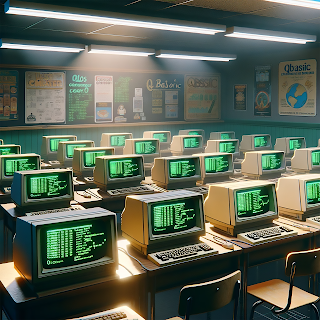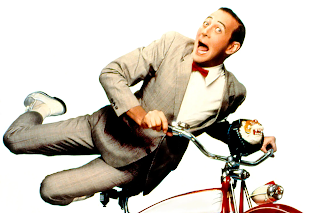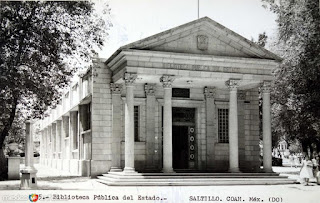Remembering Anthony Roselli: a heartfelt tribute, written by his middle son, Anthony Greig Roselli, Jr., to a life woven with New Orleans' spirit, culinary passion, and memorable adventures.
Eulogy
[Greig]: I'd like to share a few thoughts that I penned down in the parking lot. [laughter]
Anthony Roselli, a man whose spirit mirrored the vibrancy and resilience of the city he loved. In the past days, driving from Frostop to Airline Motors, I was struck by the transformations — y’all, Airline Motors is now a local branch of the New Orleans fairgrounds; that’s depressing. Can y’all believe that?
I found myself on the levee by the Mississippi River. Pam, remember when I brought you that piece of driftwood from there? The last time I saw my father was in February 2022.
I've only recently come to fully appreciate his impact. A woman on Facebook recalled seeing him regularly at Russell's, expressing her sorrow upon hearing of his passing. He touched lives, often without us even realizing it. At 73, he relished life's simple pleasures and profound depths, especially the culinary delights of New Orleans. From the bustling tables of Russell's Marina Grill to R&O's Restaurant, he was a connoisseur of our city’s flavors.
Like my younger brother Nicholas said, our knowledge of New Orleans cuisine stems from him. From high-end restaurants to the humble Waffle House, he found joy in them all. It seems silly to be moved by memories of Waffle House, but they’re part of the rich tapestry of his life.
My father’s life was a blend of deep roots in New Orleans and adventurous escapades. From humorous run-ins with the Causeway Police to mistaken identity mix-ups during my European student visa application — I’m “Anthony Greig Roselli, Junior, not Senior,” I said. Several altercations during Dad's single nights led to his imprisonment in the Parish jail. I'll let you connect the dots...
Dad certainly brought interesting moments! Despite the distance when I lived in Europe, his calls and texts, often oblivious to time zones, kept us connected. “Dad, it's 3 AM here!” we'd laugh.
His Italian-American heritage infused him with a zest for life, bringing joy to all who knew him. His presence was felt everywhere, from Coffee's Boiling Pot in Madisonville, where I worked as a busboy, where he'd lovingly pester me for refills, to the St. Tammany Parish Public Library, where I also worked after school, he'd proudly announce to everyone in the quiet periodicals section, “I’m searching for my book-shelving son.”
His unwavering support for Nicholas Adam, Brad Michael, and myself was constant. Also, his close relationship with his older sister of nine years — Carol Roselli Fallo.
One of my fondest memories involves his friend Jane LaBarre. Dad took us to City Park, where we met Jane for the first time. I’m sure she thought we were feral cats. And what an adventure that turned out to be — including a daredevil escape from the train ride, much to the ‘amusement’ of everyone, including the police later searching for a "Caucasian male."
 |
| My father and I fishing at Percy Quin State Park (circa 1984). |
Dad had a way of turning moments into memories, often accompanied by laughter. But the song 'Cats in the Cradle' – it’s a song that now holds a deeper meaning for me.
And the cat's in the cradle and the silver spoon / Little boy blue and the man in the moon / ‘When you coming home, dad/son?’ ‘I don't know when / But we'll get together then / You know we'll have a good time then.’
[tears]
I was the son who moved away and did my own thing, which I believe was my father's gift to me, albeit a sad yet beautiful one.
As we bid farewell to Anthony, let's celebrate his life not just with tears but with gratitude. He leaves a legacy in his children, grandchildren — Isabella and Ethan, his beloved family, many cousins, nieces, and nephews, and cherished friends — Susan, Danny, Jerry, Sharon, Michael Arevalo, and many more. His life was a tapestry of joy, love, and laughter, shared generously with all of us.
So, as we gather here, let’s cherish the memories, the laughter, and the love he shared with each of us. Let’s celebrate a life well-lived, a heart well-loved, and a man who will be deeply missed.
Thank you, Dad. We love you, and your spirit will always be with us. Yeah, you right.
[Laughter]
Oh gosh.
N.B.: Dad passed away on Thursday, January 11, 2024. The above eulogy, given on Friday, January 19, 2024, is a text in a slightly modified form. To hear the original eulogy, navigate to SoundCloud, where you can listen to the unvarnished version.
Obituary
Anthony Greig Roselli, Sr., aged 73, passed away on Thursday, January 11, 2024. Cherished father of Brad Michael Roselli, Anthony Greig Roselli, Jr., and Nicholas Adam Roselli, who is married to Brooke B. Roselli. Beloved best friend of Jane LaBarre and her son Michael Arevalo. He was a devoted brother to Carol R. Fallo, a loving grandfather to Isabella and Ethan, and an uncle to many nieces and nephews. He was a proud retiree from the Shell Oil Company. Anthony will be fondly remembered for the warm friendships he nurtured at Russell's Marina Grill and Dixie Chicken and Ribs, where he was always greeted with open arms. Family, friends, and those who were touched by Anthony's life are warmly invited to join in commemorating his life. The funeral service will be held at Leitz-Eagan Funeral Home on Friday, January 19, 2024, from 1:00 pm to 3:00 pm. To share memories or condolences, please visit Leitz-Eagan Funeral Home.


:max_bytes(150000):strip_icc()/streetcar2web-693ef44df24f4ae09c1e79b3cd16d898.jpg)





















